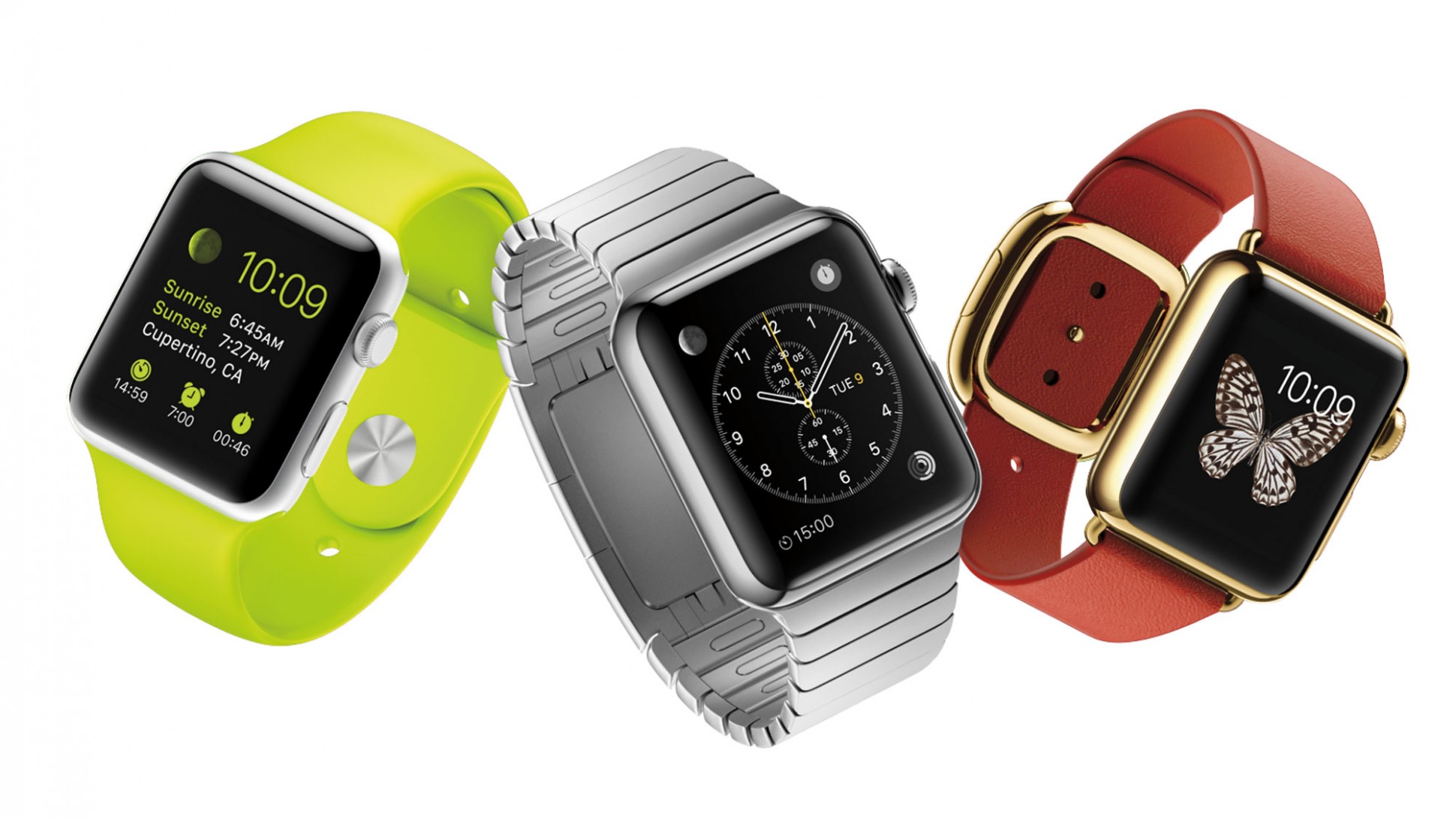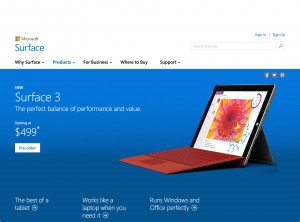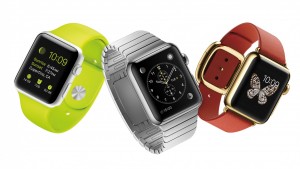
by Adam Hartung | Apr 2, 2015 | Current Affairs, Defend & Extend, In the Rapids, Innovation, Leadership, Web/Tech
Microsoft launched its new Surface 3 this week, and it has been gathering rave reviews. Many analysts think its combination of a full Windows OS (not the slimmed down RT version on previous Surface tablets,) thinness and ability to operate as both a tablet and a PC make it a great product for business. And at $499 it is cheaper than any tablet from market pioneer Apple.

Meanwhile Apple keeps promoting the new Apple Watch, which was debuted last month and is scheduled to release April 24. It is a new product in a market segment (wearables) which has had very little development, and very few competitive products. While there is a lot of hoopla, there are also a lot of skeptics who wonder why anyone would buy an Apple Watch. And these skeptics worry Apple’s Watch risks diverting the company’s focus away from profitable tablet sales as competitors hone their offerings.

Looking at these launches gives a lot of insight into how these two companies think, and the way they compete. One clearly lives in red oceans, the other focuses on blue oceans.
Blue Ocean Strategy (Chan Kim and Renee Mauborgne) was released in 2005 by Harvard Business School Press. It became a huge best-seller, and remains popular today. The thesis is that most companies focus on competing against rivals for share in existing markets. Competition intensifies, features blossom, prices decline and the marketplace loses margin as competitors rush to sell cheaper products in order to maintain share. In this competitively intense ocean segments are niched and products are commoditized turning the water red (either the red ink of losses, or the blood of flailing competitors, choose your preferred metaphor.)
On the other hand, companies can choose to avoid this margin-eroding competitive intensity by choosing to put less energy into red oceans, and instead pioneer blue oceans – markets largely untapped by competition. By focusing beyond existing market demands companies can identify unmet needs (needs beyond lower price or incremental product improvements) and then innovate new solutions which create far more profitable uncontested markets – blue oceans.
Obviously, the authors are not big fans of operational excellence and a focus on execution, but instead see more value for shareholders and employees from innovation and new market development.
If we look at the new Surface 3 we see what looks to be a very good product. Certainly a product which is competitive. The Surface 3 has great specifications, a lot of adaptability and meets many user needs – and it is available at what appears to be a favorable price when compared with iPads.
But …. it is being launched into a very, very red ocean.
The market for inexpensive personal computing devices is filled with a lot of products. Don’t forget that before we had tablets we had netbooks. Low cost, scaled back yet very useful Microsoft-based PCs which can be purchased at prices that are less than half the cost of a Surface 3. And although Surface 3 can be used as a tablet, the number of apps is a fraction of competitive iOS and Android products – and the developer community has not yet embraced creating new apps for Windows tablets. So Surface 3 is more than a netbook, but also a lot more expensive.
Additionally, the market has Chromebooks which are low-cost devices using Google Chrome which give most of the capability users need, plus extensive internet/cloud application access at prices less than a third that of Surface 3. In fact, amidst the Microsoft and Apple announcements Google announced it was releasing a new ChromeBit stick which could be plugged into any monitor, then work with any Bluetooth enabled keyboard and mouse, to turn your TV into a computer. And this is expected to sell for as little as $100 – or maybe less!

This is classic red ocean behavior. The market is being fragmented into things that work as PCs, things that work as tablets (meaning run apps instead of applications,) things that deliver the functionality of one or the other but without traditional hardware, and things that are a hybrid of both. And prices are plummeting. Intense competition, multiple suppliers and eroding margins.
Ouch. The “winners” in this market will undoubtedly generate sales. But, will they make decent profits? At low initial prices, and software that is either deeply discounted or free (Google’s cloud-based MSOffice competitive products are free, and buyers of Surface 3 receive 1 year free of MS365 Office in the cloud, as well as free upgrade to Windows 10,) it is far from obvious how profitable these products will be.
Amidst this intense competition for sales of tablets and other low-end devices, Apple seems to be completely focused on selling a product that not many people seem to want. At least not yet. In one of the quirkier product launch messages that’s been used, Apple is saying it developed the Apple Watch because its other innovative product line – the iPhone – “is ruining your life.”
Apple is saying that its leaders have looked into the future, and they think today’s technology is going to move onto our bodies. Become far more personal. More interactive, more knowledgeable about its owner, and more capable of being helpful without being an interruption. They see a future where we don’t need a keyboard, mouse or other artificial interface to connect to technology that improves our productivity.
Right. That is easy to discount. Apple’s leaders are betting on a vision. Not a market. They could be right. Or they could be wrong. They want us to trust them. Meanwhile, if tablet sales falter….. if Surface 3 and ChromeBit do steal the “low end” – or some other segment – of the tablet market…..if smartphone sales slip….. if other “forward looking” products like ApplePay and iBeacon don’t catch on……
This week we see two companies fundamentally different methods of competing. Microsoft thinks in relation to its historical core markets, and engaging in bloody battles to win share. Microsoft looks at existing markets – in this case tablets – and thinks about what it has to do to win sales/share at all cost. Microsoft is a red ocean competitor.
Apple, on the other hand, pioneers new markets. Nobody needed an iPod… folks were happy enough with Sony Walkman and Discman. Everybody loved their Razr phones and Blackberries… until Apple gave them an iPhone and an armload of apps. Netbook sales were skyrocketing until iPads came along providing greater mobility and a different way of getting the job done.
Apple’s success has not been built upon defending historical markets. Rather, it has pioneered new markets that made existing markets obsolete. Its success has never looked obvious. Contrarily, many of its products looked quite underwhelming when launched. Questionable. And it has cannibalized its own products as it brought out new ones (remember when iPods were so new there was the iPod mini, iPod nano and iPod Touch? After 5 years of declining iPod sale Apple has stopped reporting them.) Apple avoids red oceans, and prefers to develop blue ones.
Which company will be more successful in 2020? Time will tell. But, since 2000 Apple has gone from nearly bankrupt to the most valuable publicly traded company in the USA. Since 1/1/2001 Microsoft has gone up 32% in value. Apple has risen 8,000%. While most of us prefer the competition in red oceans, so far Apple has demonstrated what Blue Ocean Strategy authors claimed, that it is more profitable to find blue oceans. And they’ve shown us they can do it.

by Adam Hartung | Jan 22, 2012 | Defend & Extend, In the Rapids, Innovation, Leadership, Lock-in, Transparency, Web/Tech
Turning over a new year inevitably leads to selections for "CEO of the Year." Investor Business Daily selected Larry Page of Google 3 weeks ago, and last week Marketwatch.com selected Jeff Bezos of Amazon. Comparing the two is worthwhile, because there is almost nothing similar about what the two have done – and one is almost sure to dramatically outperform the other.
Focusing on the Future
What both share is a willingness to focus their companies on the future. Both have introduced major new products, targeted at developing new markets and entirely new revenue streams for their companies. Both have significantly sacrificed short-term profits seeking long-term strategic positioning for sustainable, higher future returns. Both have, and continue to, spend vast sums of money in search of competitive advantage for their organizations.
And both have seen their stock value clobbered. In 2011 Amazon rose from $150/share low to almost $250 before collapsing at year's end to about $175 – actually lower than it started the calendar year. Google's stock dropped from $625/share to below $475 before recovering all the way to $670 – only to crater all the way to $585 last week. Clearly the analysts awarding these CEOs were looking way beyond short-term investor returns when making their selections. So it is more important than ever we understand what both have done, and are planning to do in the future, if we are to support either, or both, as award winners. Or buy their stock.
Google participates in great growth markets
The good news for Google is its participation in high growth markets. Search ads continue growing, supplying the bulk of revenues and profits for the company. Its Android product gives Google great position in mobile devices, and supporting Chrome applications help clients move from traditional architectures and applications to cloud-based solutions at lower cost and frequently higher user satisfaction. Additionally, Google is growing internet display ad sales, a fast growing market, by increasing participation in social networks.
Because Google is in high growth markets, its revenues keep growing healthily. But CEO Page's "focus" leadership has led to the killing of several products, retrenching from several markets, and remarkably huge bets in 2 markets where Google's revenues and profits lag dramatically – mobile devices and search.
Because Android produces no revenue Google bought near-bankrupt Motorola to enter the hardware and applications business becoming similar to Apple – a big bet using some old technology against what is the #1 technology company on the planet. Whether this will be a market share winner for Google, and whether it will make or lose money, is far from certain.
Simultaneously, the Google+ launch is an attempt to take on the King Kong of social – Facebook – which has 800million users and remarkable success. The Google+ effort has been (and will continue to be) very expensive and far from convincing. Its product efforts have even angered some people as Google tried steering social networkers rather heavy-handidly toward Google products – as it did with "Search plus Your World" recently.
Mr. Page has positioned Google as a gladiator in some serious "battles to the death" that are investment intensive. Google must keep fighting the wounded, hurting and desperate Microsoft in search against Bing+Yahoo. While Google is the clear winner, desperate but well funded competitors are known to behave suicidally, and Google will find the competition intensive. Meanwhile, its offerings in mobile and social are not unique. Google is going toe-to-toe with Apple and Facebook with products which show no great superiority. And the market leaders are wildly profitable while continuously introducing new innovations. It will be tough fighting in these markets, consuming lots of resources.
Entering 3 gladiator battles simultaneously is ambitious, to say the least. Whether Google can afford the cost, and can win, is debatable. As a result it only takes a small miss, comparing actual results to analyst expectations, for investors to run – as they did last week.
Amazon redefines competition in its markets
CEO Bezos' leadership at Amazon is very different. Rather than gladiator wars, Amazon brings out products that are very different and avoids head-to-head competition. Amazon expands new markets by meeting under- or unserved needs with products that change the way customers behave – and keeps competitors from attacking Amazon head-on:
- Amazon moved from simply selling books to selling a vast array of products on the web. It changed retail buying not by competing directly with traditional retailers, but by offering better (and different) on-line solutions which traditional retailers ignored or adopted far too slowly. Amazon was very early to offer web solutions for independent retailers to use the Amazon site, and was very early to offer a mobile interface making shopping from smartphones fast and easy. Because it wasn't trying to defend and extend a traditional brick-and-mortar retail model, like Wal-Mart, Amazon has redefined retail and dramatically expanded shopping on-line.
- Amazon changed the book market with Kindle. It utilized new technology to do what publishers, locked into traditional mindsets (and business models) would not do. As the print market struggled, Amazon moved fast to take the lead in digital publishing and media sales, something nobody else was doing, producing fast revenue growth with higher margins.
- When retailers were loath to adopt tablets as a primary interface for shoppers, Amazon brought out Kindle Fire. Cleverly the Kindle Fire is not directly positioned against the king of all tablets – iPad – but rather as a product that does less, but does things like published media and retail very well — and at a significantly lower price. It brings the new user on-line fast, if they've been an Amazon customer, and makes life simple and easy for them. Perhaps even easier than the famously easy Apple products.
In all markets Amazon moves early and deftly to fulfill unmet needs at a very good price. And then it captures more and more customers as the solution becomes more powerful. Amazon finds ways to compete with giants, but not head-on, and thus rapidly grow revenues and market position while positioning itself as the long term winner. Amazon has destroyed all the big booksellers – with the exception of Barnes & Noble which doesn't look too great – and one can only wonder what its impact in 5 years will be on traditional retailers like Kohl's, Penney's and even Wal-Mart. Amazon doesn't have to "win" a battle with Apple's iPad to have a wildly successful, and profitable, Kindle offering.
The successful CEO's role is different than many expect
A recent RHR International poll of 83 mid-tier company CEOs (reported at Business Insider) discovered that while most felt prepared for the job, most simultaneously discovered the requirements were not what they expected. In the past we used to think of a CEO as a steward, someone to be very careful with investor money. And someone expected to know the business' core strengths, then be very selective to constantly reinforce those strengths without venturing into unknown businesses.
But today markets shift quickly. Technology and global competition means all businesses are subject to market changes, with big moves in pricing, costs and customer expectations, very fast. Caretaker CEOs are being crushed – look at Kodak, Hostess and Sears. Successful CEOs have to guide their businesses away from investing in money-losing businesses, even if they are part of the company's history, and toward rapidly growing opportunities created by being part of the shift. Disruptors are now leading the success curve, while followers are often sucking up a lot of profit-killing dust.
Amazon bears similarities to the Apple of a decade ago. Introducing new products that are very different, and changing markets. It is competing against traditional giants, but with very untraditional solutions. It finds unmet needs, and fills them in unique ways to capture new customers – and creates market shifts.
Google, on the other hand, looks a lot like the lumbering Microsoft. It has a near monopoly in a growing market, but its investments in new markets come late, and don't offer a lot of innovation. Google's products end up competing directly, somewhat like xBox did with other game consoles, in very, very expensive – usually money-losing – competition that can go on for years. Google looks like a company trying to use money rather than innovation to topple an existing market leader, and killing a lot of good product ideas to keep pouring money into markets where it is late and not terribly creative.
Which CEO do you think will be the winner in 2015? Into which company are you prepared to invest? Both are in high growth markets, but they are being led very, very differently. And their strategies could not be more different. Which one you choose to own – as a product customer or investor – will have significant consequences for you (and them) in 3 years.
It's worth taking the time to decide which you think is the right leadership today. And be sure you know what leadership principles you are adopting, and following in your organization.





